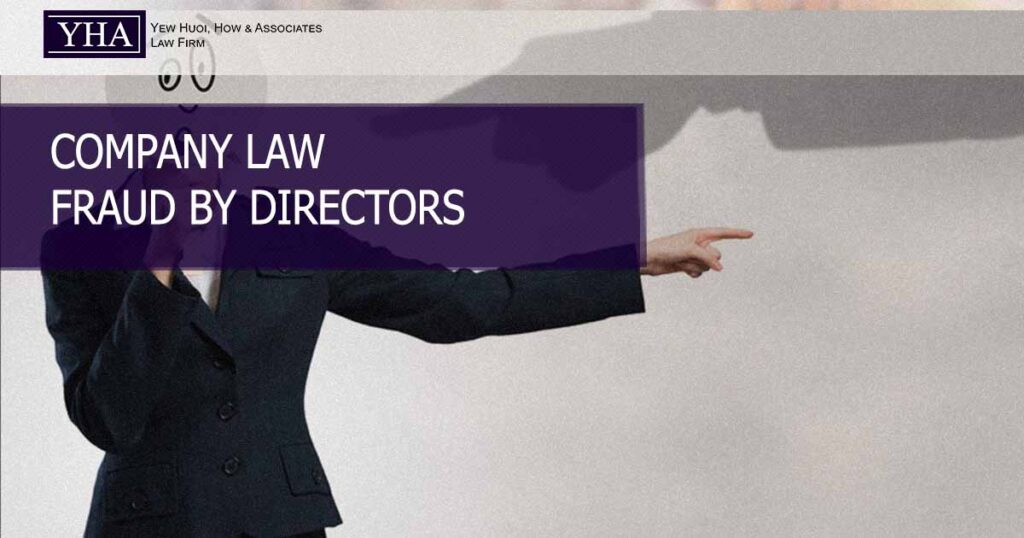I have contracted with a company for service rendered and I will be paid RM1 million. Service was rendered. However, when the company refused to pay, I sued the company. The directors agreed that they will make payment to me when they have received monies from a sale of their land to MH Group. I have withdrawn the case against the company on the directors assurance. These turns out to be a lie. The directors later dissipated the money away to 3rd party.
Can I sue the directors personally for fraud.
- Yes. You can sue the directors for knowingly and intentionally carried out the business of the company by dissipating the monies under the sale and purchase with MH Group. The monies were assured to be paid to you.
- The directors of the company had knowing and fraudulent misrepresented to you that you will receive payment upon their sale to MH Group; thus rendering you agreeing to withdraw the case against the company earlier.
- Section 540 of the Companies Act 2016 provides as follows:
“(1) If in the course of the winding up of a company or in any proceedings against a company it appears that any business of the company has been carried on with intent to defraud the creditors of the company or creditors of any other person or for any fraudulent purpose, the Court on the application of the liquidator or any creditor or contributory of the company, may, if the Court thinks proper so to do, declare that any person who was knowingly a party to the carrying on of the business in that manner shall be personally responsible, without any limitation of liability, for all or any of the debts or other liabilities of the company as the Court directs.”
Can the director of the company claim that they are not in any way personally liable to the company’s debt to you?
- No. Fraud can be used to pierce the corporate veil to make directors personally liable for their fraudulent act.
- The directors of the company would have committed the fraud of knowingly carrying out dissipation of the monies and to be a knowing party to the fraud.
What is the burden of proof for fraud?
- Fraud in civil cases has to be proven on the balance of probabilities and not beyond reasonable doubt in a criminal proceeding.
Case in point : Tetuan Sulaiman & Taye v Wong Poh Kun & Anor and another appeal [2023] 3 MLJ 361

